OVERCOMING THE BARRIERS TO DELIVERING WORKPLACE EXPERIENCE FOR YOUNG PEOPLE
The latest research by the Institute of Student Employers (ISE) considers how work experience needs to evolve in the dominantly hybrid world of work. How can we ensure quality and authentic experiences of the world of work for young people? And what challenges must be overcome to achieve this evolution?
What are the challenges of organising work experience?
In surveys by the ISE, schools and employers were asked to score the level of ease they found in organising work experience.
Three quarters (74%) of schools and colleges rated it as difficult or very difficult to organise, with only 2% rating it as easy and none rating it as very easy.
Employers were more positive in their scores, with only half rating it difficult or very difficult, and 28% rating it easy or very easy.
Common challenges were:
- While many employers are still finding their balance in terms of hybrid working, the challenge for work experience is two-fold: how young people access quality work experiences in a hybrid environment, and how employers deliver authentic experiences which reflect the realities of working in a hybrid workplace.
- Lack of resources and time to invest in work experience, from both employers’ and schools’/colleges’ perspectives.
- Difficulties connecting schools and colleges with employers – there was a general feeling of a disconnect between demand for work experience and the supply of opportunities.
- Safeguarding, health and safety, risk assessments and other processes and protocols which apply to under-18s in the workplace.
- Providing equipment and resources for work experience students due to the short period of time they spend with an employer.
Overcoming challenges
Think Modern Work Experience
Work experience has been a recognised feature of secondary education for decades. Now is the time to rethink our approach in the context of modern work practices and new industries. The Gatsby Benchmarks recognise the importance of work experience, with Benchmark 6 stating that by the age of 16 every pupil should have had at least one experience of a workplace, with more and more schools meeting this benchmark. Seeing the world beyond the school gates can be inspiring. To turn this inspiration into work readiness, experiences must be connected to a wider programme of high-quality careers education.
Be Creative
A good place to start is by broadening our understanding of work experience to include a more diverse range of opportunities, such as industry visits, job shadowing and employer-led projects. This creates more opportunities for young people. Insight from our Employer Standards shows that employers are more likely to offer workplace visits than two weeks of work experience. The key is making sure each touchpoint builds on the last one – and leads to the next. It’s about building a coherent set of experiences for young people.
Move away from traditional block placements
Shifting the focus from a stand-alone placement towards multiple, targeted and varied experiences enables the development of a progressive programme of workplace activity for each young person. This can start early (e.g. Year 7) and enables schools to weave in other critical elements of quality careers education, such as understanding local labour market information and reflecting careers in the curriculum.
Focus on a young person’s progression/career readiness journey
Working with partners, our goal is to shift the focus from the number of days spent and tasks completed to the impact: the skills young people develop and the personal growth they achieve over time. In other words, we are moving from defining quality inputs to driving quality outcomes.
Collaborate
If you aren’t able to offer in-person/traditional work experience due to role type or sector, consider other innovative ways to bring the working world to life for young people. Could you collaborate with other employers in similar sectors to deliver an engaging and inspiring experience which simulates working on a project or scenario without the full commitment of traditional placements?
Engage with your local Careers Hub
If you are one of those employers who identified difficulties in connecting with schools and colleges, then contact your local Careers Hub. They will support you in building long-lasting and sustainable relationships.
The Benefits
A progressive, outcome-focused approach to workplace experiences has benefits for everyone:
- Schools and colleges can map meaningful workplace experiences across the broader careers curriculum. They can plan activities with purpose and intent, ultimately providing more clarity on the value and the impact on wider education priorities.
- Young people benefit from a personalised learner journey which builds on prior learning and focuses on developing their knowledge, skills, and work-ready behaviours.
- Employers can map their workplace experiences against the three stages to understand their intent and the appropriate depth and content, making links with their own strategic goals. For SMEs and resource-constrained employers, the different entry points mean they can contribute without having to commit huge amounts of time.
Take the first step today by volunteering to Give an Hour or offering Modern Work Experience. For more details, contact: CareersHub@southyorkshire-ca.gov.uk



